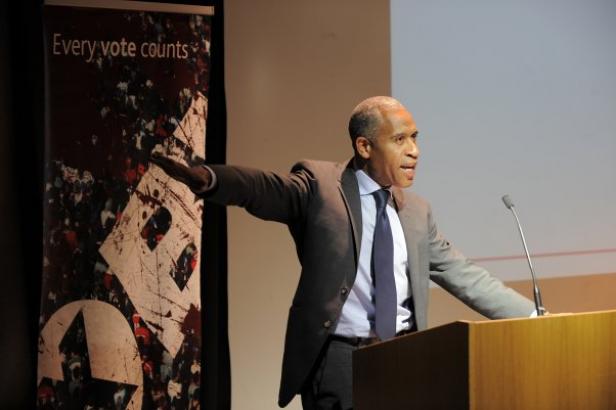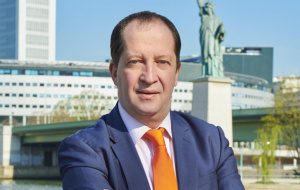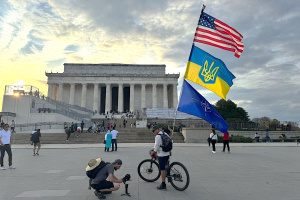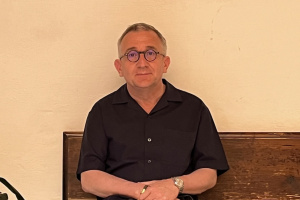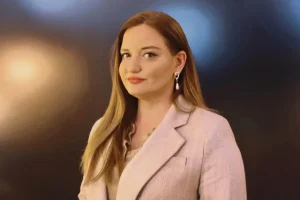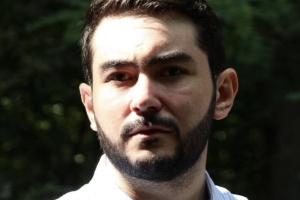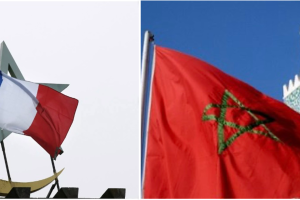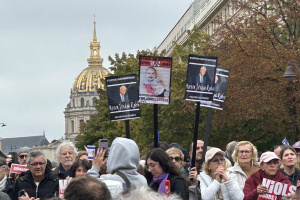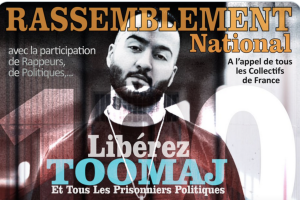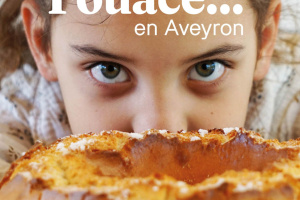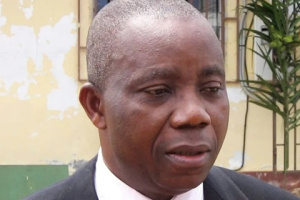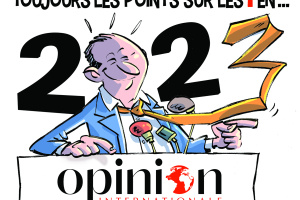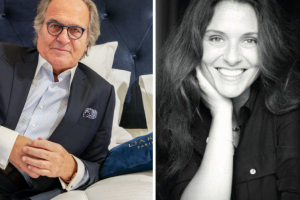On May 22nd 2014, citizens of the United Kingdom will go to vote for their 73 EU representatives in the European Parliament. At the last EU elections in 2009, only 34.7% of the voters cast their ballot. This rate differs depending on age, the youth being less involved in politics, and on ethnic groups, as black and minority ethnic communities tend to have lower turnout in addition to lower registration rates. According to the Electoral Commission, 23% of the Black and Minority Ethnic communities were not registered in 2011, while they were only 14% of the White communities.
Since 1996, the organisation Operation Black Vote (OBV) has been fighting against this low participation of the black and minority ethnic communities in politics. Its director Simon Woolley discusses this issue with Opinion Internationale, also addressing the problem of the upcoming European elections which, he believes, will suffer from the far right wave currently taking over Europe.
Can you please describe OBV’s work?
We are at the forefront, here in the UK, of empowering black and minority ethnic communities to have a strong voice in the democratic system and civic institutions. We believe that having a strong voice in these institutions is critical, if we are to tackle persistent race inequalities – which are present in the criminal justice system, in the police, in the courts and in the prisons. Race inequalities also exist in jobs: our young men are more likely to be unemployed, and those who are employed are more likely to have lower wages.
There is also inequality in political representation. First of all we do not participate, because we see these institutions as not listening to us. So there is inequality in participation, but also in representation. Now it ought to be 70-80 black or minority ethnic MPs, and we have only 27. There is a big gap there.
How do you plan on challenging these inequalities?
It is a huge challenge, not least because the present political climate, in the UK and of course Europe, is anti-immigrant. The austerity measures and debates have not focused on the financial institutions that cause the problem. Far too many politicians blame immigrants or people of colour for the nation’s problems. We are easy scapegoats for austerity problems. Because of this current political climate, our task is even bigger than it normally is.
Yet, here in the UK we are, actually, politically very powerful, or at least potentially powerful. Our research clearly shows that in 168 constituencies, the « black vote » (which refers to political black, meaning Black and Caribbean minorities, non-white) could decide over 168 seats. There are 650 seats in Parliament, but interestingly, elections are decided with less than a hundred seats. The present coalition has a majority of 77, so any communities that can decide 168 seats could make a difference between winning and losing in an election. With that power, we are now mobilising our communities, to the fact that we are powerful but we must engage and we must hold politicians and their political parties to account.
What is the main reason for abstaining from voting among the minority ethnic communities?
Racism is always there unless it is challenged, and challenged mercilessly. Black minorities do not go to vote because they see « white » institutions; they think things will never change because we live in a racist society.
We must challenge this racism through the institutions and through politics. What is frustrating for me is that many in our communities say that there is no point in engaging in politics, because politicians do not listen. But for me, they do not listen precisely because we do not engage in politics; things will never change unless we engage. So we have to have strong conversations within our community, as we do not have the luxury not to engage.
What can we expect the upcoming EU elections to bring?
The European elections will be particularly bad, precisely because for the first time since the Second World War, far-right groups are joining together across Europe. Although their headline rhetoric is anti-EU, it is really anti-immigration and anti-black. This is a very worrying element because across Europe, with the deep austerity measures, a racist, populist rhetoric is gathering momentum.
Political parties here in the UK, like the United Kingdom Independent Party (UKIP), who want to be out of Europe, are actually engaging in dividing the country. For instance, in reaction to the recent flooding in the UK, the leader of the UKIP, Nigel Farage, said that we must stop giving foreign aid to Africa, Pakistan, or Syria, and divert that money to those who are being affected by the floods. Their rhetoric is clear: why are we giving money to black people when we should be giving money to our own people in the UK?
It is truly appalling. This is what we are fighting against, but we have got to spread the word, to Africans, Asians, Caribbean, Chinese, Turkish communities, that we have to fight back, politically. We have to demand respect, to demand equality, and as we actually are British, Europeans, we have to be respected as such.
Do you think the minority ethnic communities will also abstain from voting in the EU elections?
I think so. There is indeed a deep worry that black people will not vote because they see Europe as distant. But we have to remember: the leader of the British National Party won by 5000 votes in a regional constituency of 5 millions. In his first few months in Brussels, he had a press conference where he said that the way to stop Africans of arriving to Europe is to sink their ship. He had a political platform to prevent black people to come to Europe. That is what happens when we do not vote.
Do you truly believe that more participation from the minority ethnic communities will overturn this racist discourse?
The challenge is huge, but I’m a black activist in the same mould as Nelson Mandela, as Martin Luther King, as Jesse Jackson. We fight, so no matter what you throw at us we will fight. The challenge is difficult, but it is not the same difficulty as in Martin Luther King’s day, or Nelson Mandela’s day. It is still tough, but we will fight. If we do not vote, we get worse than nothing. What I mean by that is that we get people who are against us. We do not have the luxury to say that this does not matter.





